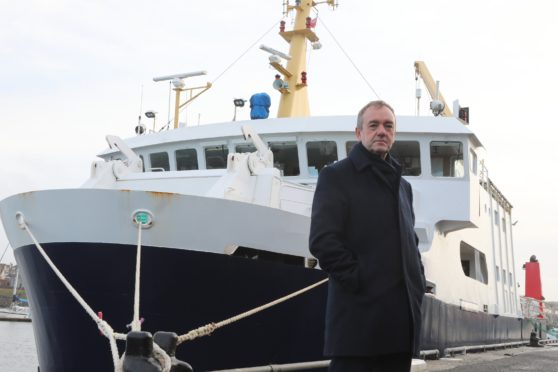Schools on Orkney should be given special treatment when it comes to reopening, according to the leader of the island’s council.
James Stockan fears the government’s blended model, where children alternate learning in the classroom with online teaching, would be “impossible” to manage in the community.
And, due to the low risk of coronavirus there, he believes it would be safe for children to return to the classroom full-time quicker than elsewhere in Scotland.
Mr Stockan wants Holyrood education chiefs to consider a tailored approach for Orkney, and has demanded a meeting with Education Secretary John Swinney to discuss the idea.
Mr Stockan said: “I share the government’s ambition for pupils to return to the classroom full-time as quickly as it is safe to do so.
“We believe this could be achieved sooner in Orkney than in many other areas of Scotland because we have been fortunate in having relatively few cases of Covid-19.
“With effective test and protect measures in place, we all hope this will continue over the weeks and months ahead.
“In these circumstances, I am asking the government to adopt a regional approach to the reopening of schools.
“We want to see a return to full in-school teaching as early as possible in areas like Orkney.”
Orkney Islands Council has a school population of approximately 3,000 across its two secondary schools, three junior schools and 17 primaries.
The island has had just nine confirmed cases of Covid-19, the second-lowest figure behind the Western Isles.
The Scottish Government’s blended 50-50 approach will result in pupils only visiting schools for half the week, splitting face-to-face time with a teacher with home learning.
Mr Stockan has said this presents a “major challenge”.
He added: “It would require many more teachers and school buses than we have available to us.
“There is insufficient suitable space in other buildings to provide safe and effective schooling.
“With the staffing we have, we would be unable to provide both school-based education and childcare for the children of key workers.
“In addition, teachers would have little or no time to prepare online resources for at-home learning – especially as there would need to be paper-based alternatives, given that many areas of Orkney have low or no digital connectivity.
“Quite simply this is undeliverable and impossible for us to put into practice.
“With the resources available to us, we calculate that the majority of our children and young people would be at school for two days a week at best.
“This would have a massive impact on our local economy, with one or more parents having to remain at home for much of the week, and on the wellbeing of our young folk.
“The alternative would be to spend vast amounts of money on the extra resources required to meet the government’s aims – again with potentially devastating consequences for our community.”
In Argyll and Bute, plans to reopen its 88 schools were issued to parents yesterday.
The approach will result in primary pupils being split into two groups who will attend schools on either Monday and Tuesday, or Thursday and Friday.
On the days children are not physically in school buildings, learning activities will be provided for use at home.
In secondary schools, pupils will also be split into groups and will attend on alternating weeks.
Other authorities have raised fears that the objectives to reinstate education could place strain on other council resources and could even force job cuts.
Highland Council chief executive Donna Manson said implementing the measures could lead to job losses without additional funding.
First Minister Nicola Sturgeon said the onus lies with council’s to “apply innovation and creativity”.
A Scottish Government spokeswoman said: “Local authorities will have the flexibility to plan and deliver a return to education which suits local circumstances and takes the needs of all of the children, young people and parents in their area into account.
“But coronavirus remains a serious threat and we believe it is important that all areas of the country are making preparations to implement appropriate physical distancing and hygiene measures.
“Guidance makes clear that all local authorities should implement measures with a view to being able to ease them as soon as it is safe to do so.
“The Education Recovery Group, chaired by the Deputy First Minister, continues to work with representatives of local authorities, parents, teachers’ organisations and trades unions on how we manage the safe re-opening of schools.”
